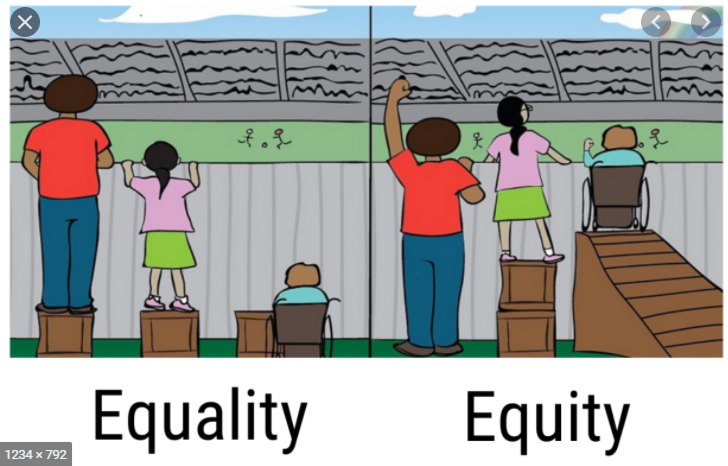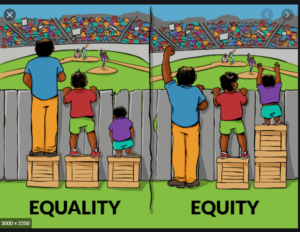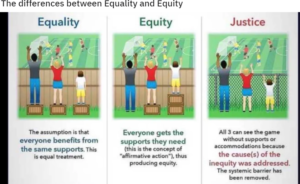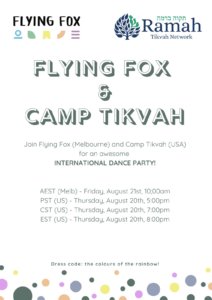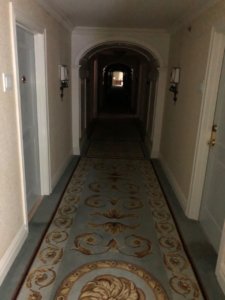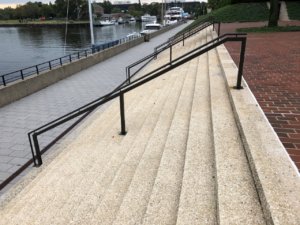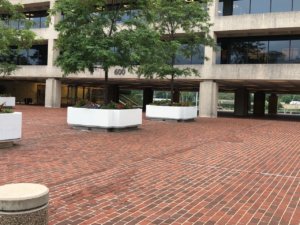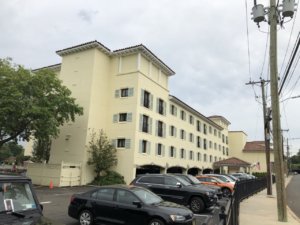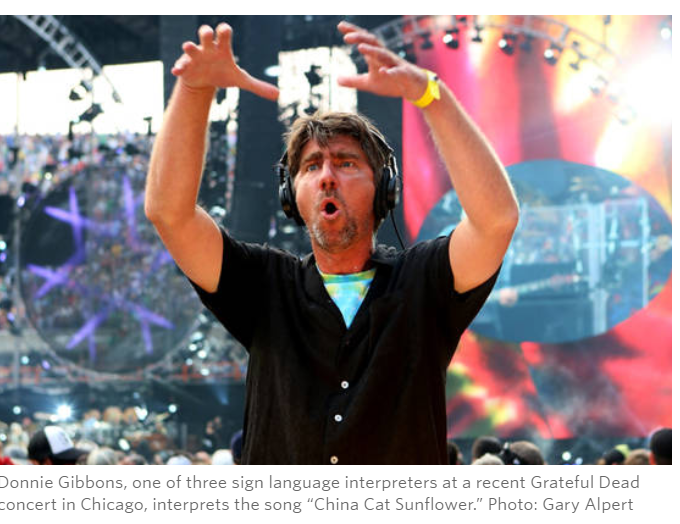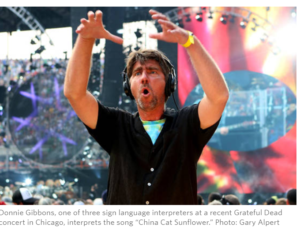Every summer when overnight camps are in session (please, let’s be in session next summer!), I look forward to teaching Tikvah (disabilities inclusion) staff about the differences between equality and equity. There is a classic image that explains it quite simply—in order to see a baseball game from the outfield fence, three people of different heights don’t have equal access to the game. One can see the game over the fence, one’s view is partially blocked and the 3rd person can’t see at all as the fence is in the way! They need different “things” in order to see the game—a tall person can see without any accommodation, while a shorter person needs a box or two to stand on. Pretty straight forward. Who could possibly argue that it is necessary to offer an accommodation?
Ellen Gutoskey in an article in mentalfloss.com offers an example by George Washington University’s Milken Institute School of Public Health. They point out that recognizing the difference between equality and equity is important in just about every sphere of life: public health, politics, education, racial justice, and more. If each public school in a certain county receives 150 new laptops, that’s technically equal. But it doesn’t factor in that some of those schools might be located in high-income districts where most of the students already have their own laptops. Instead, officials should allocate the devices according to which schools have the greatest need for them—that way, they can minimize the chance that dozens of laptops will end up gathering dust at one school, while another doesn't have enough to go around. This is a very relevant example as the majority of students in the country—regardless of means—are learning virtually.
A recent USA Today article and a recent This American Life podcast made me think more of the issue of offering accommodations to ensure equity. In the USA Today article, students in Virginia who are immunosuppressed were advocating that all—not some—college courses be offered virtually this semester. If only some courses are offered in person, those who are immunosuppressed and not able to attend classes in person due to medical reasons, would be left out of certain courses. If all courses are offered online, everybody will have access to all courses.
This American Life very skillfully and sensitively addressed the issue of timed presentations. Most people would not object if told their presentation cannot exceed five minutes. However, a very articulate person who stutters demonstrated that he has absolutely no control over how long it takes to deliver a speech. He timed his speech while practicing, and it took 2-1/2 minutes, yet when performing on stage, it was five minutes long—way over the time limit. Listeners began to understand that offering an untimed option would be a reasonable accommodation for those who stutter.
There are many wonderful images of equity vs. equality online—simply google it. Some images go even further—they point out that the ideal third option is justice—removing systemic barriers so that the cause of the inequity is addressed. May we strive to offer access for everyone—it is only fair!
